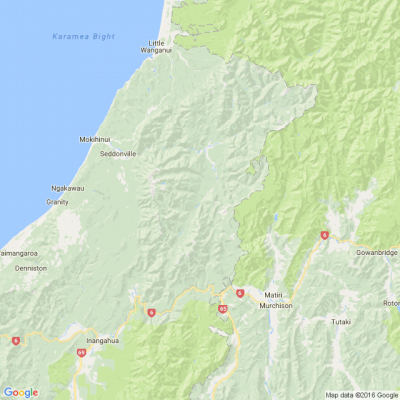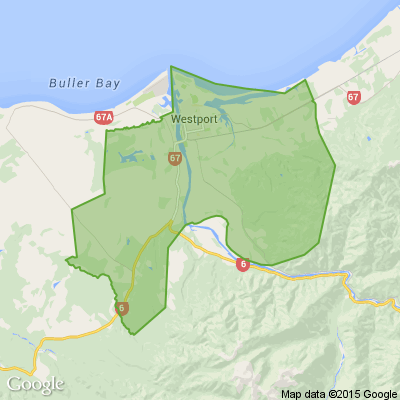GST on rates under scrutiny as council costs soar
By Lois Williams, Local Democracy Reporter
West Coasters will be topping up government coffers by at least $10 million this year, when they pay their council rates.
The GST component of rate bills nationally soared to $1.1 billion in the last analysis of data from councils around the country in 2022, by the economics consultancy firm Infometrics.
And principal economist Brad Olsen (pictured) says that figure will only increase this year as councils sign off on annual plans tackling pricey infrastructure deficits.
“We feel charging GST on rates is still appropriate because councils do supply goods and services. But we come back to the fact that a lot of councils are struggling to provide those services because their only significant source of income is rates.”
In 2022, the government clipped the rates ticket to the tune of nearly $9 million on the West Coast.
Grey District Council paid $3million in GST; Westland $2.3m; Buller $2.4m and the West Coast Regional Council, $1.2 million.
This year the Regional Council figure will be more than $1.8m – a sum that could have filled some gnarly financial potholes, chairperson Peter Haddock said.
“We had emergency flood protection work in Westport that we had to raid our catastrophe fund for and we’re still short of a million for that.
"We’ve got ratepayers struggling to come up with their share for stop banks in Franz Josef; if even part of the GST could come back to us it would help, but we could do a lot with $1.8 million.”
Westland mayor Helen Lash says her council will be handing the government $3.3 million this year, in GST.
Getting the money back would be a game changer for the district’s ratepayers, she says.
“We would use it for core services – the ones we can’t afford to fund now, like footpaths and roading, and we could put it towards capital upgrades of wastewater treatment.
"It would make a hell of a difference for Westland.”
Instead, councils are being invited to bid for a share of the government’s new $1.2 billion regional infrastructure fund, with just five regions or cities being selected in the first wave of long-term regional deals.
The amount, at least, is in line with the conclusions of the independent ‘Future for Local Government’ review panel, which last year recommended an annual transfer of funds from central to local government, equivalent to the GST paid by councils.
The former chairperson of Local Government NZ, Stuart Crosby, said the history of who pays for what when it comes to infrastructure is instructive - and often forgotten.
Now a Bay of Plenty Regional Councillor, his memories of the changes go back to 1986, when he first stood for election.
“We’ve submitted remit after remit on the return of GST on rates over the years from Local Government conferences, that this tax-on-a tax is unfair."
Before the 1989 local government reforms, the Government made large capital grants to councils for water works, roading and other activities and Catchment Boards, responsible for flood protection, were subsidised by up to 70 percent.
“It was critical funding. But all that went after 1989, except for Transport and it’s taken more than 30 years to catch up.”
The quid pro quo for funding infrastructure was that government entities did not pay rates, Crosby said.
But as the subsidies disappeared the government retained its rate-free status.
“The tradeoff back in the day, was that Government departments didn’t pay rates or development fees on new schools and hospitals and very low service rates on existing buildings.
“That was in recognition of the infrastructure subsidies but that all stopped and now we have these problems we see with water and so on and they still don’t pay rates.”
Crosby said the rebate of GST would be a first step in resolving the yawning gap that has developed between what councils must fund, often by Government decree, and what their ratepayers can afford.
But the question of whether government departments should now be paying rates should also be revisited, he says.
On the West Coast, where the Conservation Department owns nearly 90 percent of the land and there are only 20,000 rateable properties, the ability to rate the Crown would transform council finances overnight, the regions’ councils say.
The counter-argument has been that the Coast’s vast areas of mountain and native forest receive no council services and cost councils nothing.
But that does not bear scrutiny, Crosby said.
“Water comes off that land into rivers the councils have to manage, so whether its DOC or developed land. Those lands have an impact and they should be rated to make a contribution to the protection that’s needed downstream for homes and businesses.”
The chances of persuading the Government to become a ratepayer is not overly high he concedes.
“But the stress councils are under has been building for decades and every government needs functional local government to carry out national strategies.
“If it’s fragile that becomes a problem – not just for councils but for the Government itself.”
The Government has previously signalled it would consider sharing a portion of GST collected on new residential builds with councils, but not the sharing GST on rates.
Local Government Minister Simeon Brown has been approached for comment.
In August, Brown said councils must focus on the must-haves, not the nice-to-haves, to reduce costs.
Poll: Should the government levy industries that contribute to financial hardship?
As reported in the Post, there’s a $30 million funding gap in financial mentoring. This has led to services closing and mentors stepping in unpaid just to keep helping people in need 🪙💰🪙
One proposed solution? Small levies on industries that profit from financial hardship — like banks, casinos, and similar companies.
So we want to hear what you think:
Should the government ask these industries to contribute?

-
59.8% Yes, supporting people is important!
-
25.8% No, individuals should take responsibility
-
14.4% ... It is complicated
A Neighbourly Riddle! Don’t Overthink It… Or Do?😜
Do you think you know the answer? Simply 'Like' this post if you know the answer and the big reveal will be posted in the comments at 2pm on the day!
If you multiply this number by any other number, the answer will always be the same. What number is this?

Have you got New Zealand's best shed? Show us and win!
Once again, Resene and NZ Gardener are on the hunt for New Zealand’s best shed! Send in the photos and the stories behind your man caves, she sheds, clever upcycled spaces, potty potting sheds and colourful chicken coops. The Resene Shed of the Year 2026 winner receives $1000 Resene ColorShop voucher, a $908 large Vegepod Starter Pack and a one-year subscription to NZ Gardener. To enter, tell us in writing (no more than 500 words) why your garden shed is New Zealand’s best, and send up to five high-quality photos by email to mailbox@nzgardener.co.nz. Entries close February 23, 2026.









 Loading…
Loading…





